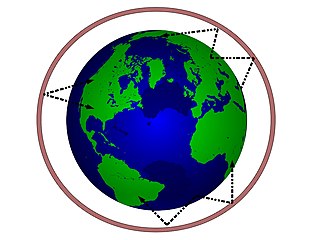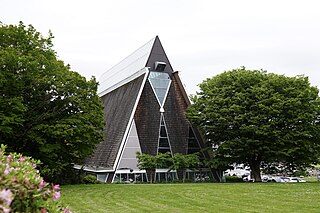
British Columbia is the westernmost province of Canada. Situated in the Pacific Northwest between the Pacific Ocean and the Rocky Mountains, the province has a diverse geography, with rugged landscapes that include rocky coastlines, sandy beaches, forests, lakes, mountains, inland deserts and grassy plains. British Columbia borders the province of Alberta to the east; the territories of Yukon and Northwest Territories to the north; the U.S. states of Washington, Idaho and Montana to the south, and Alaska to the northwest. With an estimated population of over 5.6 million as of 2024, it is Canada's third-most populous province. The capital of British Columbia is Victoria, while the province's largest city is Vancouver. Vancouver and its suburbs together make up the third-largest metropolitan area in Canada, with the 2021 census recording 2.6 million people in Metro Vancouver. British Columbia is Canada's third-largest province in terms of total area, after Quebec and Ontario.
Columbia most often refers to:

Vancouver Island is an island in the northeastern Pacific Ocean and part of the Canadian province of British Columbia. The island is 456 km (283 mi) in length, 100 km (62 mi) in width at its widest point, and 32,100 km2 (12,400 sq mi) in total area, while 31,285 km2 (12,079 sq mi) are of land. The island is the largest by area and the most populous along the west coasts of the Americas.

Michael Franklin Harcourt, OC is a Canadian lawyer and politician who served as the 30th premier of British Columbia from 1991 to 1996, and before that as the 34th mayor of Vancouver, BC's largest city, from 1980 to 1986.

In radio communication, skywave or skip refers to the propagation of radio waves reflected or refracted back toward Earth from the ionosphere, an electrically charged layer of the upper atmosphere. Since it is not limited by the curvature of the Earth, skywave propagation can be used to communicate beyond the horizon, at intercontinental distances. It is mostly used in the shortwave frequency bands.

Prince Rupert is a port city in the province of British Columbia, Canada. Its location is on Kaien Island near the Alaskan panhandle. It is the land, air, and water transportation hub of British Columbia's North Coast, and has a population of 12,220 people as of 2016.

Race Rocks Light is one of the first two lighthouses that were built on the west coast of Canada, financed by the British Government and illuminated in 1860. It is the only lighthouse on that coast built of rock, (granite) purportedly quarried in Scotland, and topped with sandstone quarried on Gabriola Island. The Islands of Race Rocks are located just off the southern tip of Vancouver Island, about 16 km (10 mi) southwest of Victoria, British Columbia.
The Jim Pattison Group is a Canadian conglomerate based in Vancouver. In a recent survey by the Financial Post, the firm was ranked as Canada's 62nd largest company. Jim Pattison, a Vancouver-based entrepreneur, is the chairman, CEO, and sole owner of the company. The Jim Pattison Group, Canada's second largest privately held company, has more than 45,000 employees worldwide, and annual sales of $10.1 billion based on investments in Canada, the U.S., Mexico, Europe, Asia and Australia. The Group is active in 25 divisions, according to Forbes, including packaging, food, forestry products.

British Columbia is the westernmost province of Canada, bordered by the Pacific Ocean. With an area of 944,735 km2 (364,764 sq mi) it is Canada's third-largest province. The province is almost four times the size of the United Kingdom and larger than every United States state except Alaska. It is bounded on the northwest by the U.S. state of Alaska, directly north by Yukon and the Northwest Territories, on the east by Alberta, and on the south by the U.S. states of Washington, Idaho, and Montana. Formerly part of the British Empire, the southern border of British Columbia was established by the 1846 Oregon Treaty. The province is dominated by mountain ranges, among them the Canadian Rockies but dominantly the Coast Mountains, Cassiar Mountains, and the Columbia Mountains. Most of the population is concentrated on the Pacific coast, notably in the area of Vancouver, located on the southwestern tip of the mainland, which is known as the Lower Mainland. It is the most mountainous province of Canada.
Butedale is a ghost town on Princess Royal Island, in British Columbia, Canada. It was founded in 1911 as a fishing, mining and logging camp. Initially the salmon cannery was established by Western Packers which was purchased and operated by the Canadian Fishing Company until it ceased operating in the 1970s. At its peak, Butedale's summertime population was over 400.

Juan de Fuca Provincial Park is a provincial park located on the west coast of Vancouver Island in British Columbia, Canada. The park was established on April 4, 1996 by combining three former parks — China Beach, Loss Creek, and Botanical Beach — into one provincial park. It is the location of the majority of the Juan de Fuca Marine Trail, which is a southern compliment to the West Coast Trail within Pacific Rim National Park Reserve.
Tracks is a monthly Australian surf magazine, promoting itself as "the surfers' bible." It is published by Nextmedia.

Raft Cove Provincial Park is a provincial park in British Columbia, Canada, located south of San Josef Bay on northwestern Vancouver Island.

The Artificial Reef Society of British Columbia (ARSBC) is a registered non-profit society based in Vancouver, British Columbia (BC), and has been a registered tax-deductible charity in Canada since 1992.
Mark Andreas Cornelis Versfeld is a Canadian former competitive swimmer and backstroke specialist. At the 2000 Summer Olympics, he finished in 26th position in the 100 m backstroke. He won the same event and the 200 m backstroke two years earlier, at the 1998 Commonwealth Games. At the 1998 Aquatic World Championships he won a silver in the 100-metre backstroke, and bronze in the 200-metre backstroke, breaking a Commonwealth record in the process. He was named Canadian Male Aquatic Athlete of the Year in 1998.
Sir Arthur Nonus Birch KCMG was Lieutenant Governor of Ceylon, Colonial Secretary for Ceylon and acting Lieutenant Governor of Penang and Province Wellesley (1871-1872).

Salt Spring Island or Saltspring Island is one of the Gulf Islands in the Strait of Georgia between mainland British Columbia, Canada, and Vancouver Island.

Tofino is a town of approximately 2,516 residents on the west coast of Vancouver Island in the Canadian province of British Columbia. The District of Tofino is located at the western terminus of Highway 4 on the tip of the Esowista Peninsula at the southern edge of Clayoquot Sound. It is situated in the traditional territory of the Tla-o-qui-aht First Nations.

Surfing in Canada is practised on its east and west coasts, as well as via lake surfing on the Great Lakes, and river surfing on standing waves and tidal bores.
The Canadian Railroad Historical Association (CRHA) is a non-profit organization established in 1932 in Canada and is "devoted to preserving and interpreting Canada's railway heritage, which its founders and members have safeguarded from coast to coast." It is headquartered in Saint-Constant, Quebec and organized into 8 divisions located across the country.












